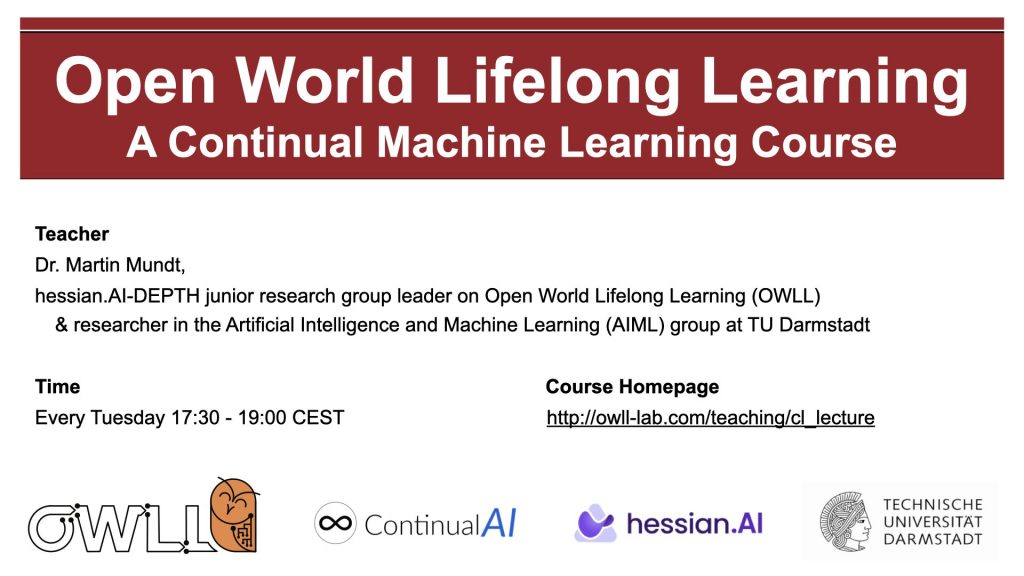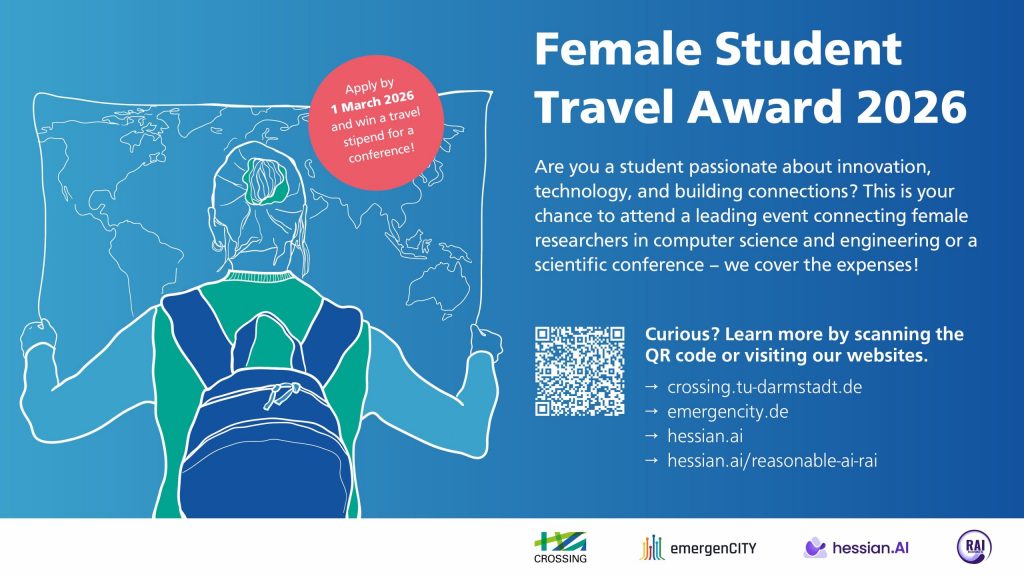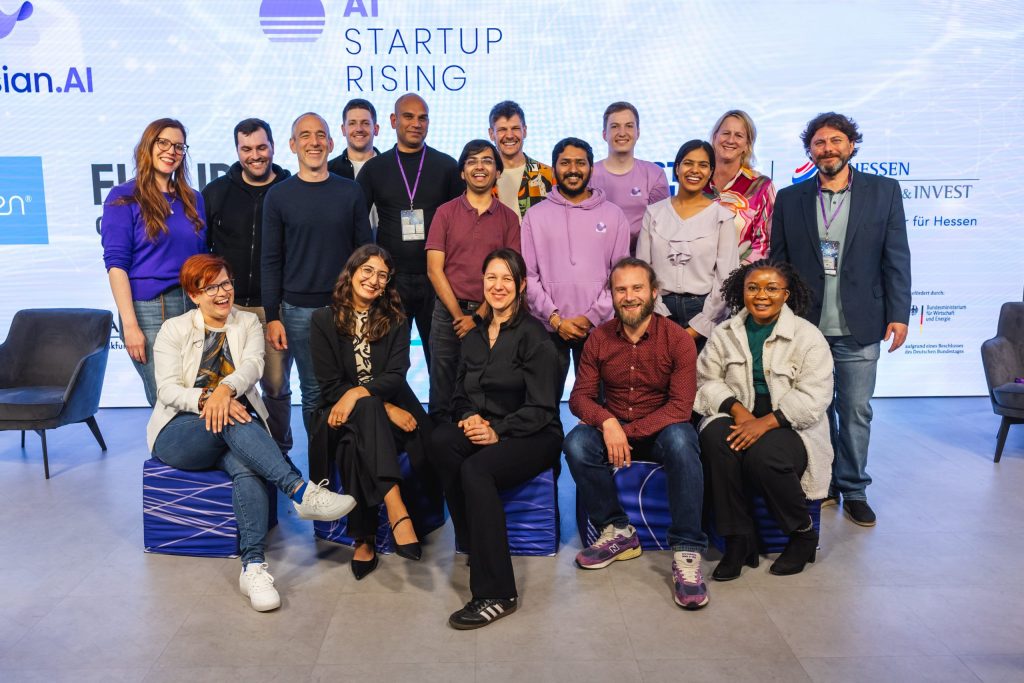
Open World Lifelong Learning – A Continual Machine Learning Course
hessian.AI and ContinualAI.org offer the 13 week long course titled „Open World Lifelong Learning – A Continual Machine Learning Course“ to make continual Machine Learning accessible to the public.
The course will be held by Martin Mundt, who is the hessian.AI DEPTH junior research group leader of the Open World Lifelong Learning (OWLL) lab and a postdoctoral researcher in the Artificial Intelligence and Machine Learning group at Technische Universität Darmstadt, in tight collaboration with the non-profit ContinualAI organization.
The general focus of the course will be to provide a comprehensive overview of the breath of factors to consider when moving towards machines that learn continually. A more detailed account of the lecture and the spanned topics are provided below.
Make sure to follow the course every Tuesday live on Youtube at 17:30 – 19:00 CEST:
The first lecture will be starting on May 3rd. The YouTube recording will be persistent and remain watchable at later points in time.
The presented slides will be shared on the course website: http://owll-lab.com/teaching/cl_lecture/.
Machine learning studies the design of models and training algorithms in order to learn how to solve tasks from data. Whereas historically machine learning has concentrated primarily on static predefined training datasets and respective test scenarios, recent advances also take into account the fact that the world is constantly evolving. In this course, we will go beyond the train-validate-test phase and explore modern approaches to machines that can learn continually. In addition to a comprehensive overview of the breath of factors to consider in continual learning, the course will delve into techniques that span mitigation of forgetting across multiple tasks, selection of new data in continuous training, dynamic model architectures, and robustness with respect to unexpected data inputs.
Course Content:
- Introduction and motivation to learning continually
- From domain adaptation and transfer to continual learning
- Alleviating catastrophic forgetting: methodologies and examples
- Active learning: selecting future data
- Modular and dynamic architectures
- Curriculum learning
- Closed and open world assumptions
- Continual learning benchmarks and metrics
- Learning to learn: a meta-learning perspective
- Software developments for continual learning
- Open-ended research questions and applications


